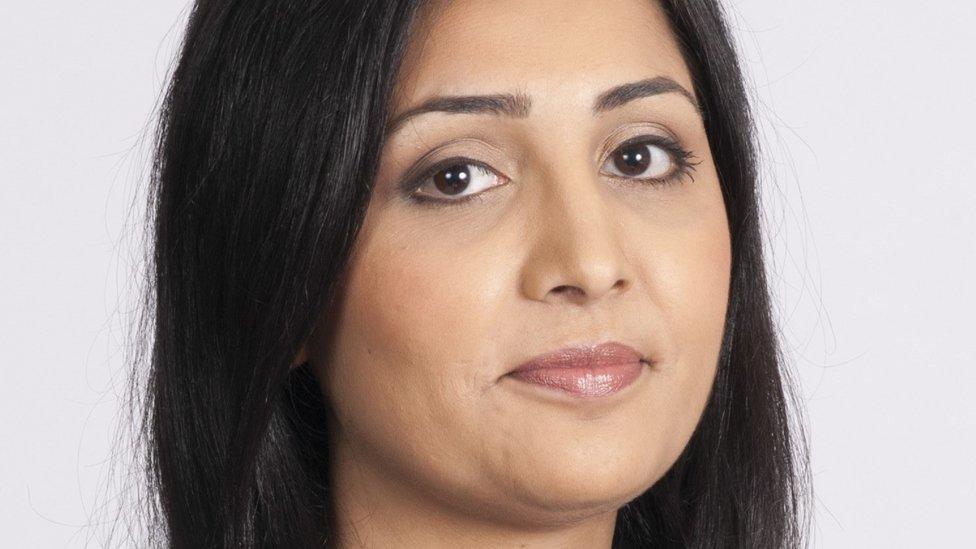Kashmir earthquake: Broken city, broken promises
- Published
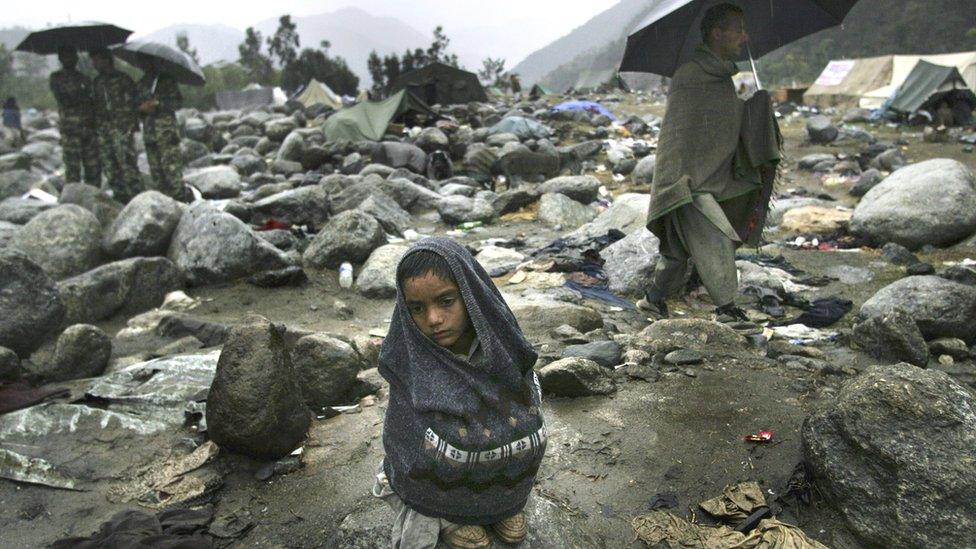
The 8 October 2005 earthquake in Kashmir is remembered as one of the worst natural disasters in South Asia. The BBC's Shahzeb Jillani was among the first journalists to report from the devastated city of Balakot, near the epicentre. A decade on, he has gone back there to meet some of the survivors.
Nestled among towering green mountains and situated along the gushing River Kunhar, Balakot appears perfectly placed as a scenic stop for tourists on a long road journey from Islamabad to north Pakistan.
But since the 7.6 magnitude earthquake on 8 October 2005, the town is still reeling from the massive devastation it experienced - economically and emotionally.
When I first arrived there a day after the earthquake, much of Balakot looked like a bombed-out city. About 90% of the buildings had been reduced to rubble. Dead bodies were being recovered. The community was treating the wounded, mostly on a self-help basis.
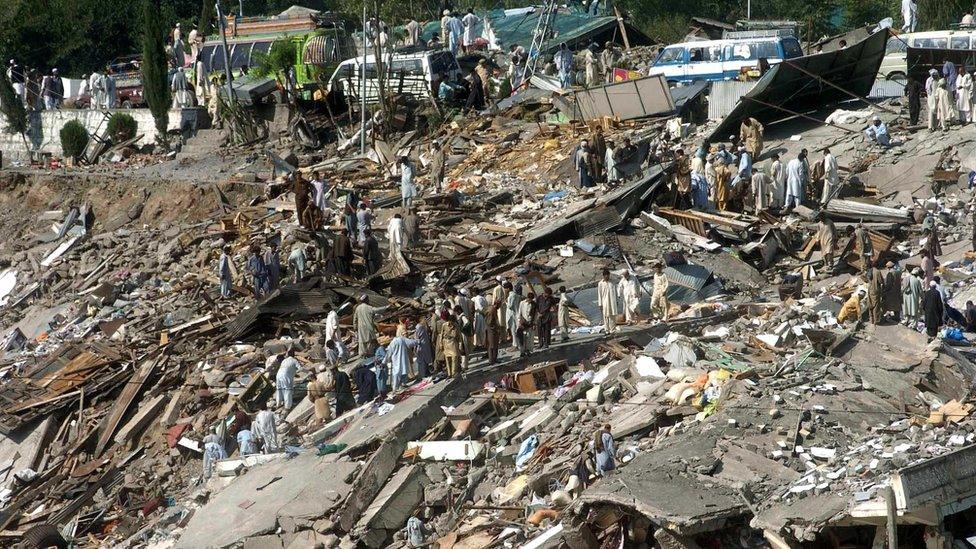
Balakot on 10 October 2005
The earthquake had affected the northern regions of Pakistan, Afghanistan and India. An estimated 75,000 people were killed, mostly in Pakistan-administered Kashmir.
We came across the rubble of a multi-storey building that had been Shaheen School. Traumatised parents had gathered in search of their children. Many of the children were still alive and their voices could be heard from underneath. But as the hours passed, the voices started to fade.
By evening, the bodies of children were being retrieved by parents. Pain quickly turned to anger as crowds started shouting slogans against the government and the army for not moving quickly enough.
What I saw there on that day has stayed with me ever since. I was overwhelmed by the scale of the tragedy around me. Most of all I was struck by a deep sense of helplessness. What do you say to a parent who can hear the cries of his children stuck below the rubble, when without heavy machinery there is nothing he can do to help them?
Many children died at Shaheen School, but several were miraculously brought out alive too. Among them was nine-year-old Ihtesham-ul-Haq. On my recent visit to the city, he recalled that fateful day: "We were having English lessons when I heard a loud bang. Everything went dark. When I woke up a few hours later, I found myself buried under the concrete walls. It was dark so I couldn't see anything, but I could hear faint voices of some of my fellow friends."
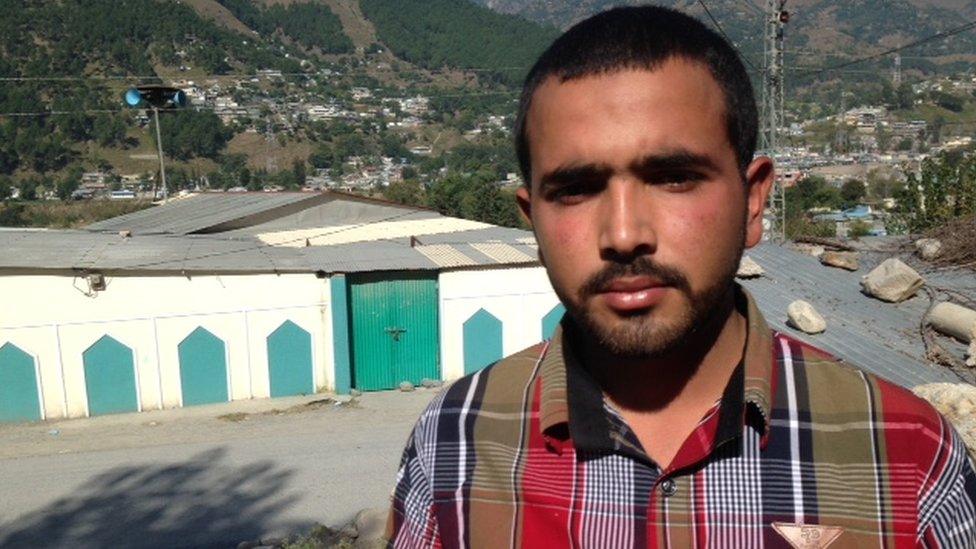
Ihtesham-ul-Haq lost his younger brother, his teachers and friends
"I try not to think about what happened and how I survived, because when I do, I feel like an immense sadness takes over me and sometimes I break down," Ihtesham says.
His family says the trauma of that experience has affected him ever since, making him more anxious and temperamental, and develop a stammer. In recent years, thanks to some professional help, he has managed to overcome his fears and anxieties and pursue higher education, says his father.
In Balakot today, survivors carry the painful memories of that day in their hearts. Still many feel particularly angry at the way they say they were let down by the Pakistani government.
"The world community contributed billions of dollars. The government promised to built a new city away from this earthquake-prone zone. They said we would be relocated in two to three years. But nothing happened," says Mohammed Farid, who lost three of his children. "We are still living in the temporary earthquake-resistant shelters, without basic social services."
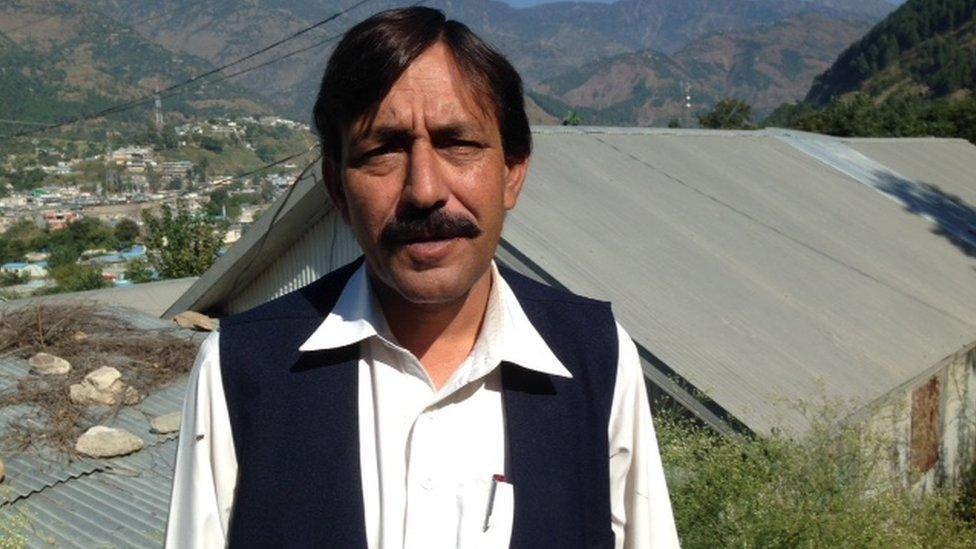
Mohammed Farid lost three of his children in the rubble of Shaheen School
Pakistani officials say that despite some initial construction, the proposed new city - at Bakrayal - failed to take off because of a dispute over the acquisition of land between the central and provincial governments. Subsequent complications and a lengthy court battle then helped to put the entire project in jeopardy.
For their part, the authorities avoided much of the reconstruction and rehabilitation of the city, saying the city would have to be moved some day. This, while it had become amply clear to most people that building a whole new city from scratch would be a much bigger challenge than initially thought.
And so, for the people of Balakot, it has been a decade of lost opportunities and broken promises. Their future remains uncertain. For now, the most they can hope for is for the authorities to start reinvesting and rebuilding the existing city in order to minimise a repeat of the earthquake devastation seen 10 years ago.
- Published7 October 2015
